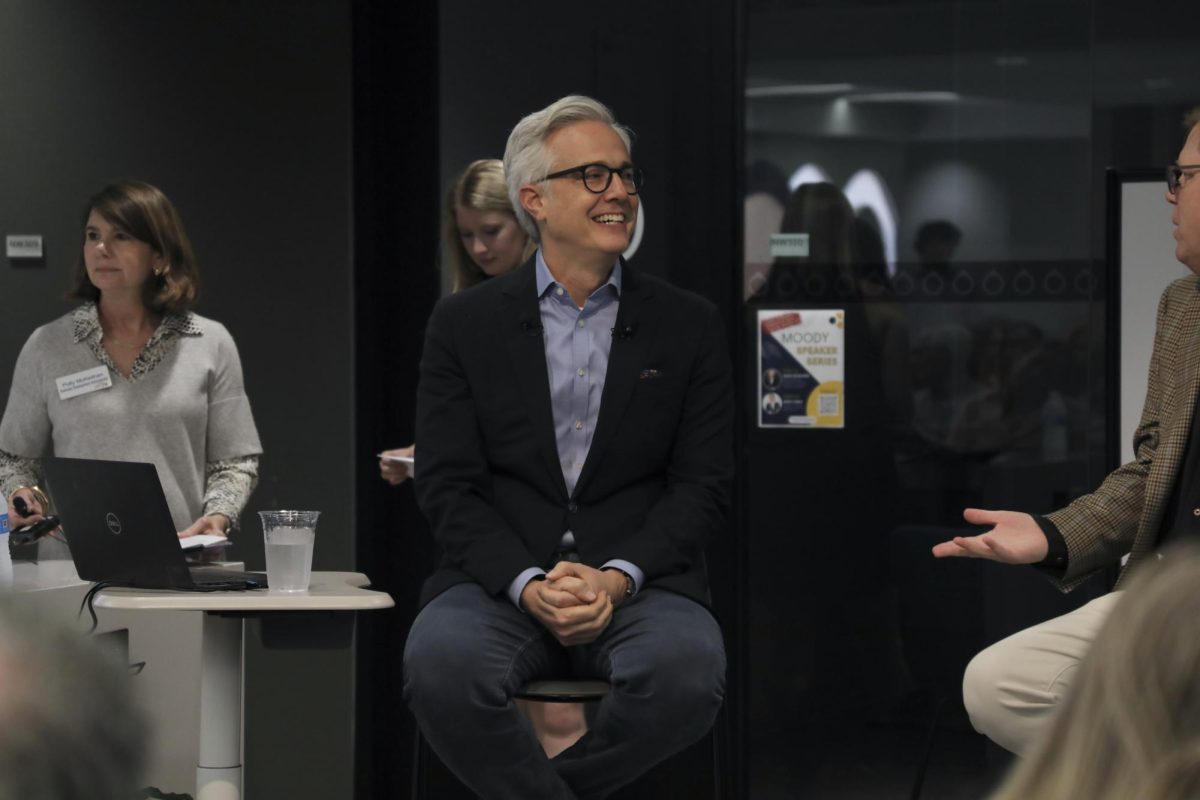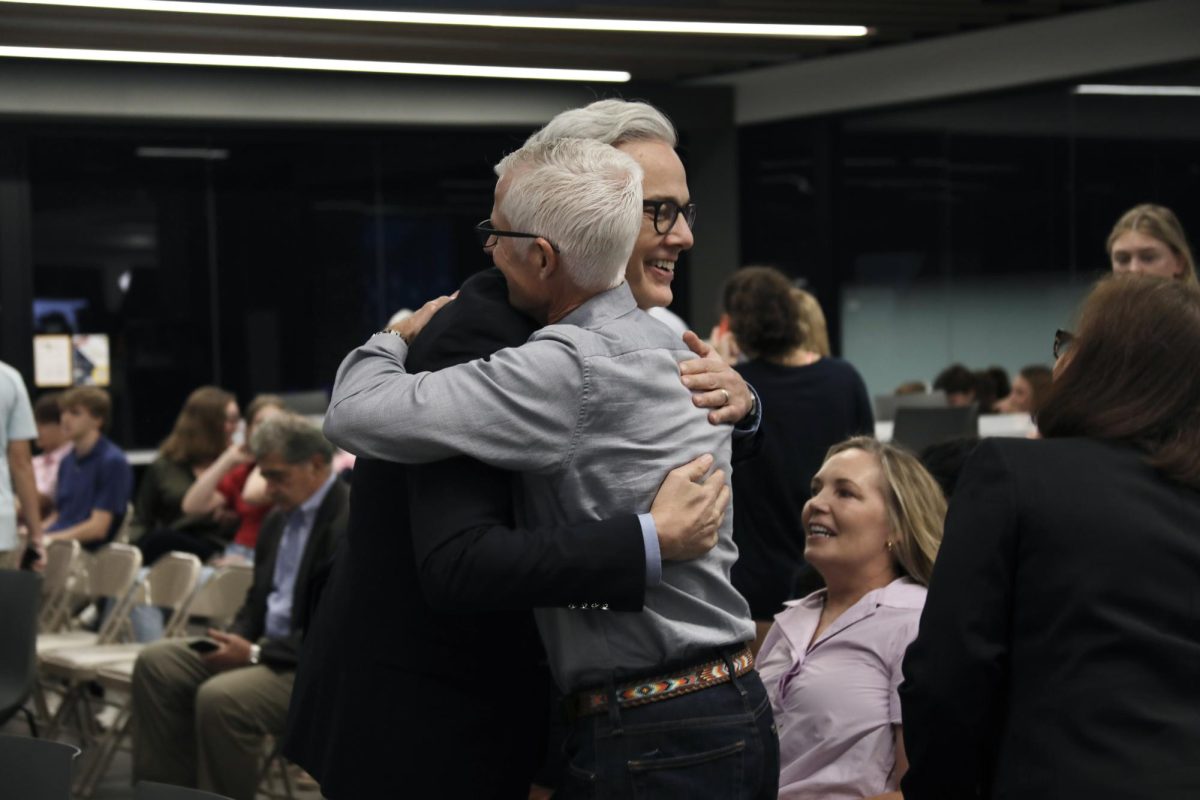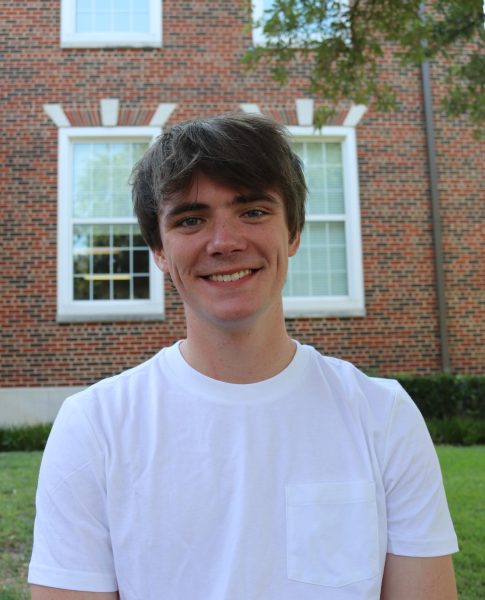In the middle of nowhere, 600 miles from the north pole, environmental reporter David Schechter watched as his friend fell and broke three ribs.
This is just one of the many challenges of climate reporting, but to Schechter, the story is worth the risk.
“I have a burning desire to know what’s true, so this show, “On The Dot,” is pretty much a dream job for me,” Schechter said.
Schechter, a Dallas resident, a renowned CBS Environmental Correspondent, and a host of the show “On the Dot,” spoke to community members on Oct. 11, as part of Moody Advanced Professional Studies (MAPS) new speaker series.
Schechter began his speech by discussing his roots in the field of investigative journalism, citing the homogeneity of the industry as one of the primary motivations for his unique style of reporting.
“The general idea in the industry was that there was an ideal voice for every reporter to use and that there’s an ideal way to write and tell a story,” Schechter said. “I felt like everyone was approaching that vanishing point on the horizon, so I tried doing things a little differently to make a name for myself.”
Through his efforts, Schechter developed a unique, more personal style of environmental reporting, breaking a long-standing tradition in which journalists would minimize the “writer’s voice” in their coverage of environmental issues. In doing so, he set himself apart from the rest of the industry.
Schechter believes that everyone, even high schoolers, have something to learn from his story.
“There’s a lot of value in knowing the classical training of something,” Schechter said. “But I also believe that once you can show mastery in the rules of your field, it’s important to break them every once in a while.”
Straying from the journalistic norms opened up a lot of doors for Schechter. One such door was opened by CNN when they offered him the leading role on their new show, “On the Dot,” which aims to discuss the impacts of global warming across the world.
“It’s really a great opportunity,” Schechter said. “We’re learning things together. We’re talking about how we’ve changed the Earth and how the Earth has changed us.”
Schechter also works to create an engaging and personal experience through his direct approach to the audience.
“I am very involved [in the show]. I’m asking a lot of questions,” Schechter said. We do that because I am the proxy for the audience. I’m the guide, and this allows us to make our show not only educational, but fun.”
This interactive energy Schechter channels on the show was also apparent throughout his presentation, during which he discussed the impact of global warming on Highland Park and the world.
“He knew that he was talking about something somewhat controversial, and that a lot of people completely dismiss it as an idea, so he went out of his way to lower the conversation to some people’s level,” MAPS student senior Quinn Olson said. “He made it seem like he’s not some lofty scientist trying to show us all these numbers, he’s just someone who’s concerned for the planet, and he wants them to share that concern.”
Olson appreciated this sentiment, believing it to go a long way in impacting community members.
“I think he understands how powerful that is as a communication tool,” Olson said. “To not elevate yourself above someone, but to stay on their level and talk to them like a fellow human. From what I understand, it worked.”
To generate audience interest, Schechter also cited his experiences across the globe in locations such as the North Pole, Hawaii, and Montana, going so far as to describe some life-threatening experiences.
“We were in Norway, basically in the middle of nowhere, and my partner, Chance Horner, fell and broke three ribs,” Schechter said. “He survived, despite us being 600 miles from the North Pole, but that puts into perspective the lengths that we have gone to cover this stuff.”
Although he has explored climate issues all across the globe, Schechter places a strong emphasis on the local impacts of climate change, hoping that these issues would resonate strongly with the audience.
“The Texas summer was insanely hot, and that was made worse because of climate change,” Schechter said. “Basic human health is impacted by the heat, but you also have droughts that are influenced by climate change, leading to watering restrictions and losing a lot of the trees in your yard.”
Through illustrating these palpable changes, Schechter aims to inspire regular people to take action.
“You don’t have to stop being a football player or a reporter or someone who’s studying physics and dedicate all your time to climate change,” Schechter said. “Just dedicating a fraction of a percent of your time to thinking about climate change goes a long, long way.”





